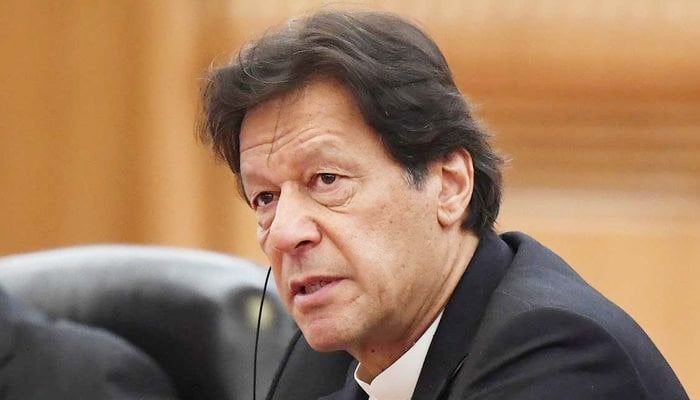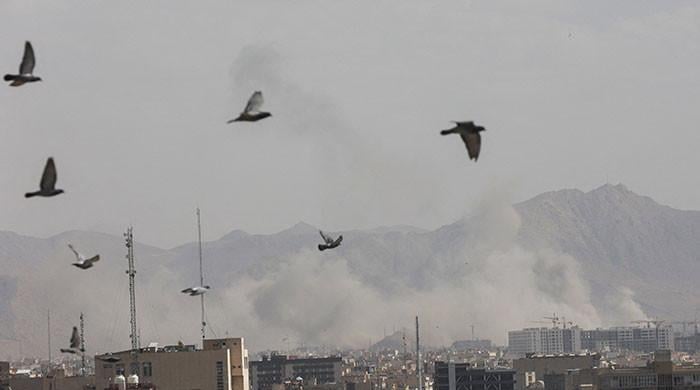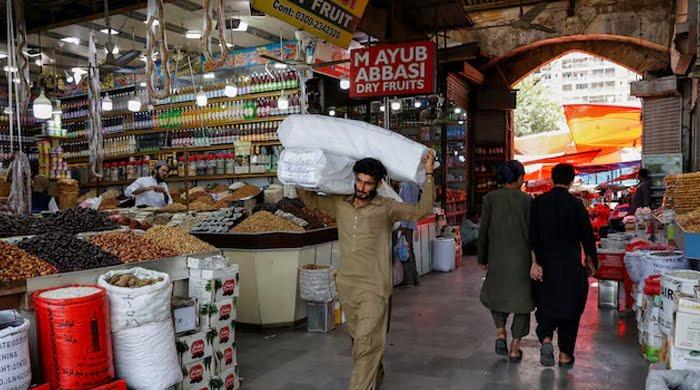Could the results of the cantonment election be repeated in 2023?
There was strong speculation that Imran Khan could go for early elections sometime in 2022. After the cantonment board election, the ruling party will definitely review its assessment, writes M Zubair
September 16, 2021

The most important message coming out of the cantonment board elections last Sunday night was that you may discredit him, you can run a propaganda campaign against him, you can disqualify him from parliamentary politics, you can ban him from holding party position, you can file references, send him to jail – but you cannot take Nawaz Sharif out of the hearts and minds of the people of Pakistan. He remains the most potent and relevant political leader across the length and breadth of Pakistan, and his popularity continues to grow even though he sits several thousands of miles away and is hardly involved in any active politics. Such is his impact.
The win in Punjab for the PML-N is spectacular. Never before has a ruling party been trounced in local government elections in all these decades. And this happened despite the PML-N facing the worst kind of political hardship – rarely suffered by any other political party in our history (the PPP of course overcame all odds to win the 1988 elections). The entire political leadership of the PML-N in Punjab not only had to face trumped up charges, but most were also sent to jail in the last three years. This included stalwarts such as Mian Nawaz Sharif, Shahbaz Sharif, Shahid Khaqan Abbasi, Khawaja Asif, Ahsan Iqbal, Maryam Nawaz, Hamza Shahbaz, Rana Sanaullah, Saad Rafique and several others.
With nearly two years still to go before the general elections, it is even more surprising that the ruling party has been rejected even though it had the backing of the Punjab and federal governments, and so in theory has far more to offer the electorate than the Opposition parties.
For the ruling party, the election results in Punjab are a clear indication of its incompetence, lack of capacity, wide-scale corruption especially at the top level and inability to deliver any meaningful benefits over the last three years. In fact, people have suffered at the hands of the PTI government like never in their lifetime. The public has seen higher prices, more unemployment and more poverty than at any time in our recent history. The vote against the ruling party is a true reflection of the anger when you consider the promises made for a welfare society that was to permanently change the lives of this country’s people. Change it did – but unfortunately for the worse.
The results in the cantonment board elections could possibly be the end of the Usman Buzdar rule. Appointing him in the first place was bad enough. A person with no experience, no insight, no quality education, no communication skills, no governance experience was a cruel joke. It made even worse sense considering the proven qualities of Shahbaz Sharif during the period 2008-2018. By far the best administrator in Punjab’s history, Shahbaz Sharif delivered on a world class level and created his own high standards which were difficult to match.
It is not Usman Buzdar’s fault. The blame squarely lies with Imran Khan who for reasons unknown to his own party leadership appointed Buzdar on such a sensitive position. The result was a disaster on a scale unimaginable three years ago. Every failure of Usman Buzdar meant more changes in the Punjab bureaucracy. Seven different police chiefs and five chief secretaries in just three years is only a glimpse of what has been happening in Pakistan’s largest province.
And it is not just Punjab which has given nightmares to the PTI leadership. The party has badly lost in some very important cantonments in other provinces which have been considered the ruling party’s stronghold for the past many years.
Karachi Clifton and DHA have been the party’s strongest constituencies in several local government, national and provincial assembly elections. It made a clean sweep in the Karachi Cantonment board elections in Clifton and DHA in 2015. Moreover, the party won all national and provincial assembly seats in both the 2013 and 2018 elections.
In addition to sitting MNAs and MPAs, the president of Pakistan as well as the governor of Sindh won from the Defence and Clinton areas – again both in the 2013 and 2018 elections. Unlike in the past, they had no one to blame for the miserable infrastructure conditions in these posh localities. The Sindh or federal governments both have nothing to do in these localities. There was anger among some of the most educated people and that was clearly reflected in the voting behaviour.
Peshawar is the other cantonment where the ruling party lost badly. The PTI has been ruling the province since 2013. Therefore, it cannot blame anyone else for the deteriorating infrastructure and other services in the province over the past eight years. The perception about corrupt practices by the party leadership has also contributed to its failure in the recent elections.
In recent months, especially after the Sialkot by-elections, there was strong speculation that Imran Khan could go for early elections sometime in 2022. A view shared by most independent political analysts was that early elections would suit the ruling party. After the cantonment board elections and the drubbing the party has received in Punjab and key constituencies outside Punjab, the ruling party will definitely review its earlier assessment of going in for early elections. The sentiment has completely shifted against the PTI and in favour of the PML-N.
As it stands now, there is a strong likelihood that the trend seen in the cantonment board elections could be repeated in the upcoming local government and later in the general elections. It may be too early to predict though – but if the past is any indicator, we could see further loss of credibility of the present government.
For now, the ruling party has faced a terrible defeat in Pakistan’s most populous province. As they say, the road to Islamabad goes through Punjab. Hopefully Imran Khan for once will rely more on the electorate than depending on other stakeholders to bail him out.
The writer is the spokesperson for Nawaz Sharif and Maryam Nawaz, and former governor Sindh.
Twitter: @Real_MZubair
Originally published in The News











